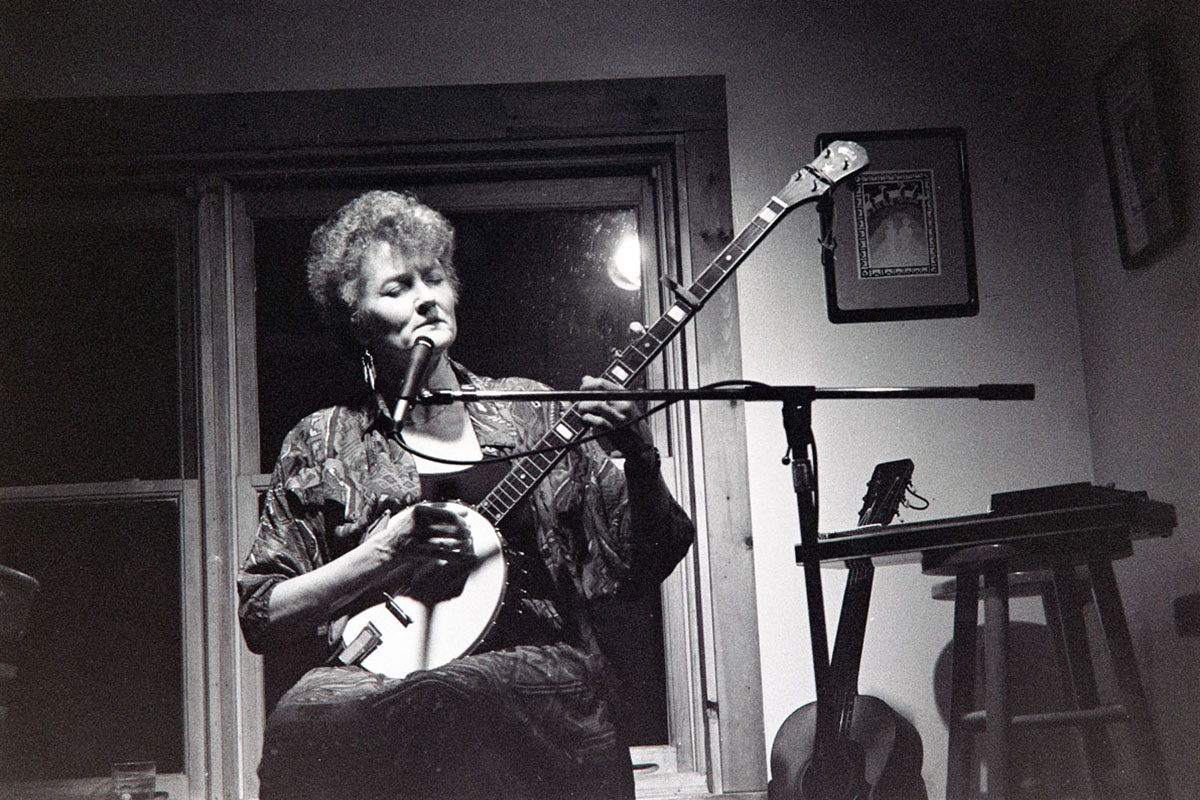
by Jean Freedman
This essay originally appeared on the Smithsonian Folkways Recordings website as an Artist Spotlight.

Photography by Diana Davies, Ralph Rinzler Folklife Archives and Collections.
Peggy Seeger will be 82 on June 17, 2017, and she has no plans to retire. At present, a new album is in the works and a multi-city tour of Britain is planned for the autumn to coincide with the publication of her memoir. All of this is good news, for few people have contributed more to professional folk music than Peggy Seeger. A strikingly original artist, her place in the world of folk music seems almost preordained.
Peggy was born in 1935 and grew up in a family where folk music was a given. Her father, Charles Seeger, was a musicologist who collected, studied, and published folk music, championing its use as an educational tool and a means of community cohesion. Her mother, Ruth Crawford Seeger, was a composer and teacher who used folk music in her own compositions, changed the practice of American music education by placing folk music at its center, and published three highly-acclaimed folk song anthologies. On Saturday nights, the Seegers gathered in the living room and sang; Alan Lomax and Ben Botkin were family friends who might stop by; Woody Guthrie, Lead Belly, and Guy Carawan were occasional visitors. By the time Peggy was in her teens, her brother Pete was becoming the country’s best-known folksinger, and her brother Mike was absorbing the southern Appalachian music that would be the focus of his career.
This was the legacy that Peggy took to Radcliffe College in 1953. By the end of her freshman year, she had made her first album, a collection of traditional American songs entitled Songs of Courting and Complaint. The following year, she recorded an album with her sisters, Barbara and Penny, based on one of their mother’s songbooks, American Folk Songs for Christmas. Peggy would become proficient in many genres and styles during her 60+ years as a musician, but traditional Anglo-American music would remain the backbone of her career.
Continue reading and sample Peggy Seeger's music on the Smithsonian Folkways Recordings website...
